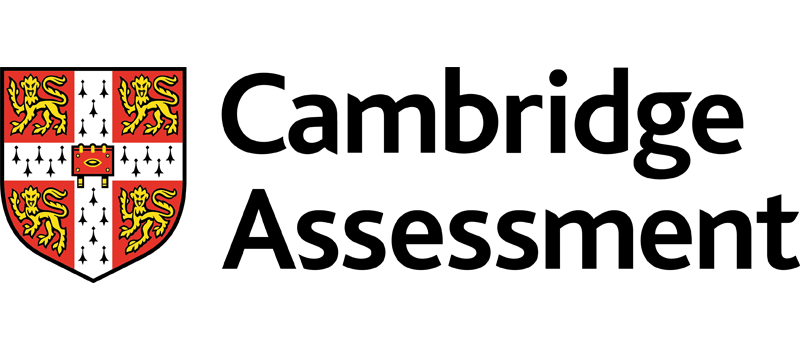
Managing Contractors & Consultants' Performance Assessment in O&M and Facility Contracts
Course ID: 2512157101427EGI
Course Dates : 15/12/25 Course Duration : 5 Studying Day/s Course Location: Dubai, UAE
Language: Bilingual
Course Category: Professional and CPD Training Programs
Course Subcategories: Human Resources and Talent Development
Course Certified By: * Projacs Academy
* Professional Training and CPD Programs
Certification Will Be Issued From :
KSA
Course Fees: £2,958.13
Vat Not Included in the price. VAT may vary depending on the country where the course or workshop is held.
Click to Pay
Contact us for more information Sales@e-s-hub.com
Course Information
Introduction
The management of contractors and consultants in Operations & Maintenance (O&M) and facility contracts is a critical function that directly impacts the efficiency, cost-effectiveness, and overall success of projects. In industries such as construction, energy, healthcare, and real estate, where outsourced expertise is often integral to operations, the ability to assess and manage contractor performance is not merely advantageous—it is essential. Poorly managed contractor relationships can lead to delays, budget overruns, safety incidents, and reputational damage. For instance, a case study from the oil and gas sector revealed that ineffective contractor oversight resulted in a 20% increase in maintenance costs due to subpar work quality and missed deadlines.
Despite its importance, many organizations struggle with implementing robust frameworks for evaluating contractor and consultant performance. Common challenges include ambiguous performance metrics, inadequate communication channels, and a lack of alignment between organizational goals and contractor deliverables. These gaps are exacerbated by evolving industry standards, such as ISO 41001 for Facilities Management, which emphasize the need for structured evaluation processes. By addressing these challenges, this course equips participants with the tools and methodologies necessary to bridge the gap between theoretical knowledge and practical application.
Performance assessment in O&M and facility contracts draws upon established theories such as Total Quality Management (TQM), Balanced Scorecard frameworks, and Key Performance Indicators (KPIs). These models provide a foundation for creating objective, measurable criteria for evaluating contractor contributions. For example, a hospital that implemented KPI-driven assessments reported a 30% improvement in service delivery times after aligning contractor objectives with patient care priorities. By mastering these frameworks, participants will gain insights into designing tailored assessment systems that meet their organization’s unique needs.
For individuals, proficiency in managing contractor performance enhances career prospects by positioning them as indispensable assets within their organizations. Leaders who can effectively oversee external partners are better equipped to drive operational excellence and foster collaborative environments. On an organizational level, improved contractor management leads to enhanced productivity, reduced risks, and stronger stakeholder relationships. This dual benefit underscores the value of investing in professional development programs like this course.
Real-world examples further illustrate the transformative potential of effective contractor management. Consider a multinational corporation that streamlined its global facilities management by adopting a standardized performance review process. Within two years, the company achieved a 15% reduction in operational costs while improving service reliability. Such outcomes demonstrate how structured performance assessments can yield tangible benefits across diverse sectors. Participants will explore similar case studies throughout the course, gaining actionable insights applicable to their own contexts.
This course is designed to empower professionals with the skills and confidence needed to navigate the complexities of contractor and consultant management. By blending theoretical foundations with hands-on exercises, it provides a comprehensive learning experience that addresses current industry demands. Whether you are new to the field or seeking to refine your expertise, this program offers valuable strategies to enhance your professional toolkit and contribute meaningfully to your organization’s success.
Objectives
By attending this course, participants will be able to:
Analyze the key components of effective contractor and consultant agreements, ensuring alignment with organizational objectives.
Evaluate existing performance assessment frameworks using industry benchmarks and best practices.
Design customized KPIs and scorecards tailored to specific O&M and facility contract requirements.
Implement corrective actions and continuous improvement initiatives based on performance data analysis.
Apply compliance standards, including ISO 41001 and legal regulations, to ensure adherence in contractor engagements.
Facilitate productive communication and collaboration between internal teams and external contractors.
Synthesize lessons learned from real-world case studies to develop innovative solutions for complex challenges.
Who Should Attend?
This course is ideal for:
Facility managers and operations directors responsible for overseeing contractor performance.
Procurement and supply chain professionals involved in sourcing and managing external services.
Project managers leading O&M initiatives requiring contractor coordination.
HR specialists tasked with developing vendor management policies.
Consultants and auditors seeking to enhance their advisory capabilities in contractor governance.
These groups will find the course invaluable as it addresses common pain points such as inconsistent performance metrics, misaligned expectations, and compliance risks. While prior experience in contractor management is beneficial, the course is suitable for intermediate learners who possess foundational knowledge of O&M principles and wish to deepen their expertise.
Training Method
• Pre-assessment
• Live group instruction
• Use of real-world examples, case studies and exercises
• Interactive participation and discussion
• Power point presentation, LCD and flip chart
• Group activities and tests
• Each participant receives a 7” Tablet containing a copy of the presentation, slides and handouts
• Post-assessment
Program Support
This program is supported by:
* Interactive discussions
* Role-play
* Case studies and highlight the techniques available to the participants.
Daily Agenda
The course agenda will be as follows:
• Technical Session 08.30-10.00 am
• Coffee Break 10.00-10.15 am
• Technical Session 10.15-12.15 noon
• Coffee Break 12.15-12.45 pm
• Technical Session 12.45-02.30 pm
• Course Ends 02.30 pm
Course Outlines
Foundations of Contractor Management
Overview of O&M and facility contracts: Types, scope, and significance.
Understanding contractor roles and responsibilities in project ecosystems.
Introduction to performance assessment frameworks: TQM, Balanced Scorecard, and KPIs.
Case study analysis: Lessons from successful contractor management practices.
Day 2:
Developing Performance Metrics
Identifying critical success factors for contractor performance.
Designing SMART (Specific, Measurable, Achievable, Relevant, Time-bound) KPIs.
Aligning KPIs with organizational goals and contractual obligations.
Workshop: Creating a draft performance scorecard for a hypothetical project.
Day 3:
Compliance and Risk Management
Review of regulatory standards: ISO 41001 and other relevant guidelines.
Mitigating risks through proactive contractor monitoring and reporting.
Legal considerations in contractor agreements and dispute resolution.
Group activity: Evaluating compliance gaps in sample contracts.
Day 4:
Communication and Collaboration
Building trust-based relationships with contractors and consultants.
Strategies for fostering open communication and feedback loops.
Tools and technologies for tracking contractor performance in real-time.
Role-playing exercise: Resolving conflicts in contractor-client interactions.
Day 5:
Continuous Improvement and Innovation
Analyzing performance data to identify trends and areas for improvement.
Implementing corrective actions and preventive measures.
Leveraging technology for predictive analytics in contractor management.
Final group presentation: Presenting a comprehensive contractor performance plan.



















































